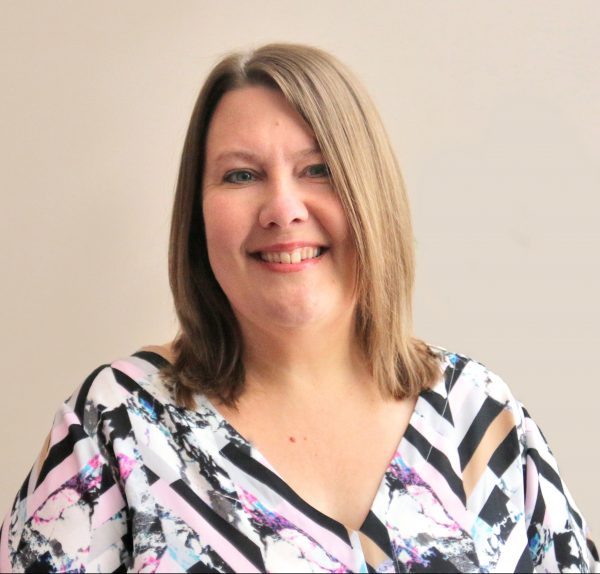 The role of a hospice social worker is to advocate for each patient’s end-of-life wishes and help individuals address the emotional aspects of late-stage illnesses. Hospice social workers also assist families in identifying other available local services and resources for additional support.
The role of a hospice social worker is to advocate for each patient’s end-of-life wishes and help individuals address the emotional aspects of late-stage illnesses. Hospice social workers also assist families in identifying other available local services and resources for additional support.
We spoke with Hospice of the Red River Valley Social Worker Tammy Baehler about the distinct role of a hospice social worker and her more than 20 years of experience helping our patients and their families navigate the end-of-life journey.
What was it about hospice care that speaks to you?
I’ve always enjoyed the concept of hospice. It’s more of an intimate setting with hospice care. You are able to go into a person’s home, whether that is a nursing home, assisted living or a private residence, and spend quality time with the patient and family. I enjoy seeing patients in their own environments, proving patient-centered care. I also enjoy being able to work so closely with the Hospice interdisciplinary team and forming close relationships to provide the best end-of-life care.
A lot of things have changed over the years, but one thing has remained consistent—we’ve always provided quality care. I believe that we do the best we can for every patient and family we serve. It’s rewarding to know you can make a difference in someone’s life.
Explain the role of a hospice social worker and how you support patients and families.
As a hospice social worker, I provide care not only for the patient, but also the entire family system. I never go into a visit with an agenda. My focus is always on finding out what is most important to the patient on that day or what is the most worrisome to the person. I think you can get a lot of information by just asking those two questions and listening. I let patients dictate the direction of our visits together and what issues they may need help with. It can be a number of things from needing more care in the home, help with advanced care planning and accessing community resources to providing supportive counseling. It all depends on what is going on with the person’s unique situation.
What do you think makes a hospice social worker a key part of the team?
Our values as social workers add an important element to the overall team. We bring calmness and open mindedness to difficult situations through empathy, advocacy and problem solving skills.
How do you navigate helping two different entities—the patient and their family—during such delicate time in people’s lives?
It can be a challenge because everyone brings in their own ideas and experiences, and you might not always agree. But one of the rewarding aspects of my job is that we get to help the patient and family members come together and decide on a path and how they want the experience to unfold. It’s all about managing expectations and being realistic about the situation and getting to know patients and their wishes so you can best support them.
Recently, a family member of a patient said to me, ‘I don’t know how you do this job, it’s so depressing.’ I shared with her that it’s really not. I get to see much good in people and their families. At a really difficult time in their lives, people are willing to come together and support one another to find a resolution, and that is so fulfilling to witness.
What does a good death look like to you?
A good death is however the patient and family define a good death. Sometimes it means having their family surround the patient or just having their pain and symptoms controlled. Whatever way you are able to honor their wishes is fulfilling.
How has working at Hospice of the Red River Valley impacted you personally?
I encourage my family to enjoy today because you are not guaranteed tomorrow. That is definitely one of the main takeaways I have learned with this job is things can change so quickly and you are not guaranteed every day. Enjoy today!
What do you do to take care of yourself in a role like this?
I think anytime a person decides to work in a long-term health care profession, you need to find different ways to take care of yourself. Things I enjoy doing are spending time at the lake on the weekends, gardening, vacationing, movies and family time.
What advice would you give to a young professional considering this career?
I always share with new staff that sometimes families bring in issues that they probably have been dealing with a long time. So you aren’t going to come in at the end of their life and just fix everything. But if you can help them navigate and manage through the end-of-life experience, that’s important and helpful. It energizes me when I get to see other people’s excitement for hospice. You can’t get away from death, and I often think of myself and my family, and I want them to have the best end-of-life experience they can possibly have. I feel we provide that at Hospice of the Red River Valley.To learn more about how Hospice of the Red River Valley social workers support patients and families, visit our website.
About Hospice of the Red River Valley
In 1981, Hospice of the Red River Valley was founded on the belief that everyone deserves access to high-quality end-of-life care. We fulfill our nonprofit mission by providing medical, emotional, personal and spiritual care, as well as grief support to our patients, their families and caregivers during a tender time in life. Our staff helps those we serve experience more meaningful moments through exceptional hospice care, 24 hours a day, 365 days a year, wherever a patient calls home. The organization serves more than 40,000 square miles in North Dakota and Minnesota, including in and around Bismarck, Detroit Lakes, Devils Lake, Fargo, Fergus Falls, Grand Forks, Lisbon, Thief River Falls, Valley City and many more communities. Hospice of the Red River Valley offers round-the-clock availability via phone, prompt response times and same-day admissions, including evenings, weekends and holidays. Contact us anytime at 800-237-4629 or hrrv.org.




